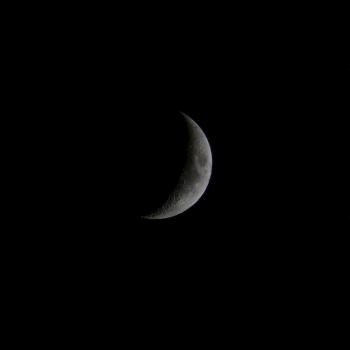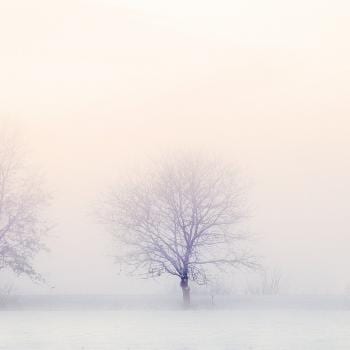The Otherfaith is communal.
It has been, from the beginning. When my friends and I were discussing what we were lacking, it was clear – community. Support. We didn’t like that everyone venturing into Paganism was supposed to build their own path and craft their own way and build their own roof. Being unafraid to speak one’s personal truth was great. Being alone wasn’t.
And we felt very, very alone. (This was also because we were Pagan and polytheist youth – around that time, our group was hovering around the ages of 15-18 years old.)
So, we decided that no matter what else, the faith that we were going to craft would be community-focused. Ironically, most of the original group fell apart (online communication is difficult as a teen, when one is in school, and people just fall out of contact). Still, I learned and continue to learn a lot about what it means to place the community above the self and what it means to be someone who plans to be of service to a religious community.
All the contemplation and self-work we do in the Otherfaith is aimed to allow us to build a stronger community. We are focused on sustaining each other.
At least, ideally.
There’s this really weird, occasionally awful, dichotomy when you’re building a religion to be communal all on your own. There’s the tight, unpleasant feeling of needing to worship with others but not having those others around. It’s really hard not to throw in the towel some days and decide to convert to a faith that is community-minded – but that’d be such a deep betrayal of my gods and myself. So when I feel really low, I usually kneel in front of my altar (or lay in bed, aching, I’ll be honest) and pray.
The reason I need and want to create a really community-focused faith is because I don’t want people to have to be alone. I don’t want people to have to be alone because they’re isolated by space, and I don’t want people to be alone because the people in their community are ego-driven or mean or unethical. (Which is where the self-work in the Otherfaith comes in! A sustainable community has all members contemplating and working on themselves to constantly be better.) We find pretty words and ideas, but the action based on those ideas is lacking.
Yeah, years later, I’m still idealistic about this. I want to build or buy a house of worship, and I want to establish classes and weekly meetings where people worship together and like each other and help each other out. Some days I feel like that’s impossible, but then I see Wiccan groups or temples, or polytheist temples, and I know it’s possible. Community is possible. It’s more than possible.
So, as I said from the beginning of this piece, the Otherfaith is communal. Right now, that focus is on solidarity – worshipping together while solitary. That’s why we have structured prayer, and also specific structured ritual, and why you won’t hear me say that you can bend the rules or words a lot. It is important that if you want to be part of the Otherfaith you say the basic prayers twice a day. It is important that you act in a way that honors the gods.
(That is actually the most ‘variable’ part of the Otherfaith, because list ethics just don’t work well, and I very much encourage questioning and individual decision making when it comes to how to honor the gods in your daily actions. The Otherfaith encourages looking at the behavior our gods think is honorable – which we see through the mythos – and discussing it as a group, and we have pragmatic ethics, which means our ethics can always be improved on and reconsidered.)
I mentioned before that there are three ‘paths’ in the Otherfaith – laity, clergy, and mystic. This is relevant to our communal set up, and it effects how we relate to other faiths as well.
Laity are those that pray, give offerings to the Four, and live in a way that pleases the gods. But that’s seriously it. One can always do more, but that’s what’s required. In a communal setting, they would attend a weekly service during which a clergyperson would perform a ceremony that aligns the community with each other and the gods and spirits. (I’m currently planning out how to bring that sort of structure online, into a virtual environment.) Socializing would occur before and after the ceremony. The Otherfaith is meant to provide structure, ideas for ethical behavior, and community to laity. One could be a lay person in the Otherfaith and participate in other faiths, and I would definitely encourage those involved with the Otherfaith to pursue other religions and practices and cultivate a spirituality that fulfills them.
The Otherfaith is, metaphorically, a roof under which we worship and socialize together, where we share values and can dream together, where we support each other. It’s a place where, when we feel ourselves breaking, our faith shaking, we can reach out and have our hand held or find a place to rest. It’s not meant to be the absolute perfect faith. The structure in the Otherfaith is not meant to imply that this is the only appropriate way to interact with spirits, but that this is our way of interacting with the gods and spirits and, by doing so, you’re connecting to something greater. You’re being part of a community.
Clergy lead the community, keep track of the calendar and organize festivities, support the laity in religious and secular matters, and are well-educated on the ethics and expectations of the Otherfaith. This isn’t to say they are the deciders of ethics in the Otherfaith, but they should be able to explain ethics and proper behavior in an easily understandable way. They should be able to guide people from a place of pain into a place of comfort. They know when to make what offerings to the gods and spirits and should be educated on the mythos. They lead by example and also through supporting people. The community, in turn, supports them. A clergyperson does not have to be perfect, but they do need to live a very honorable life, be aware of boundaries and power structure, and serve the gods.
Mystics in the Otherfaith fill a ‘spirit worker’ role – able to journey into the Otherworld, able to hear the gods and act as vessels when in possession rituals, able to sense and talk with faeries and other spirits, able to give spirit-given input into the Otherfaith. This path is meant for those who can journey and walk in otherworlds, and it’s the most ‘woo’ parts of the Otherfaith.
But – the Otherfaith is not meant only for journeyers or people possessing ‘god phones’ or those that are ‘god bothered’. It’s meant for people who look at our ethics and ideals and say, “Yes, I agree with this, I support this.” It’s meant for people who look at our gods and say, “These are deities I want in my life, deities I can honor,” and you don’t need a god phone to feel like that. The community in the Otherfaith comes about because we share values and we share gods. We are more than welcome to pursue other paths and gods, but to be an Other Person you do need to commit to our values and gods. That doesn’t mean you have to journey or work with the spirits closely.
This post on The Rose Bell got my thoughts spinning in this direction again – because so much of what was written reminds me of exactly why I started working on the Otherfaith, and how I’ve felt since I first dipped my toes into Pagandom and polytheist.












